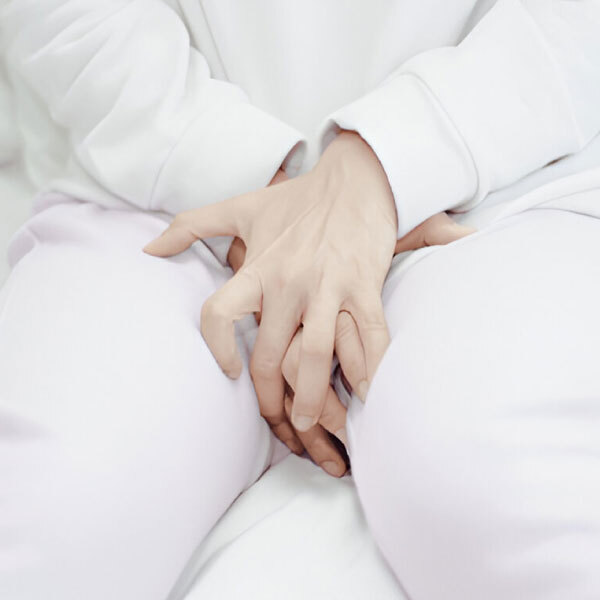
Vaginal and penile irritation means burning, itching, or soreness in the genital area. It can feel like redness or pain that disrupts comfort and daily life. Visit our DOXXES store on Westheimer/Dairy Ashford for expert guidance and helpful products.
What Is Vaginal and Penile Irritation?
This condition refers to inflammation of the skin or lining of the vagina, vulva, or penis. It can appear in different forms:
- Superficial irritation – redness or itching on the surface
- Deep irritation – aching or pain beneath the surface
- Provoked irritation – discomfort caused by touch or intercourse
Why Does Vaginal and Penile Irritation Happen?
Emotional and Mental Causes:
- Stress or anxiety that makes the body more sensitive
- Negative sexual experiences or trauma
- Relationship issues or fear of discomfort
Physical Causes:
- Infections (yeast, bacteria, or STIs)
- Hormonal shifts (puberty, menopause, pregnancy)
- Weak pelvic floor or structural issues
- Harsh soaps, douches, or tight clothing
These causes often overlap, so it helps to look at both physical and emotional triggers.
Examples and Identifying Triggers
Real-life Examples:
- A woman feels burning during sex after menopause
- Itching begins after switching laundry detergent
- Redness on the penis after using harsh soap
- Pelvic pain worsens while sitting for long periods
How to Spot Triggers:
- Keep a symptom journal—log activities, products, and symptoms
- Compare symptom-free days to painful ones
- Test small changes—like switching lubricants, fabrics, or positions
Who It Affects
Anyone with genital skin or tissue can feel irritation. These symptoms may lower confidence and add tension in relationships.
Gender-specific Notes:
- Women may experience dryness, infections, or vulvodynia
- Men may notice itching, redness, or signs of balanitis
How a Sex Therapist Can Help
A therapist can:
- Explore your sexual history and symptom patterns
- Identify stress, trauma, or self-esteem concerns
- Help with emotional release and healing tools
- Recommend further medical care if needed
Ways to Treat and Cope with Vaginal and Penile Irritation
Counseling and Therapy:
Therapists provide support for vaginal irritation and vulvodynia. They can help manage post-menopause irritation or dryness. Talking through fears and learning how to relax can make a big difference in pain and confidence.

How Doxxes.love Can Help
We offer:
- Water-based lubricants for gentle comfort
- Pelvic floor tools to ease tightness
- Soft vibrators for body awareness
- Prostate massagers for better circulation
- Skin-friendly cleansers for irritation prevention
All products come with simple cleaning and usage instructions. When paired with therapy, these tools can help you feel more in control.
Talking About Vaginal and Penile Irritation with Others
- Use gentle honesty—say “I feel worried when I’m in pain.”
- Share your feelings without blaming others
- Choose quiet, private times for discussion
- Read reliable info together as a couple
- Talk to a professional early if stress builds up
Visit Our DOXXES Store on Westheimer/Dairy Ashford
Stop by our safe and private store. We offer discreet support, expert product advice, and a calming space to explore what works best for you.
Conclusion
Irritation in sensitive areas can feel overwhelming, but there are solutions. Open conversation, trusted tools, and supportive care go a long way. Visit DOXXES on Westheimer/Dairy Ashford for guidance, comfort, and products that help you heal and thrive.
FAQs
- What is vaginal and penile irritation?
It means redness, itching, burning, or pain in the genital area. It can affect the outer skin or deeper tissues and may be triggered by touch or friction. - What are the common causes of irritation?
Irritation can be caused by infections, hormone changes, tight clothing, harsh soaps, or sexual activity. Emotional stress or past trauma can also make symptoms worse. - What are the symptoms to look out for?
Burning, itching, redness, soreness, discomfort during sex, pain while sitting, or changes in skin texture may signal irritation. - Can products cause genital irritation?
Yes. Some soaps, detergents, lubricants, or douches can irritate sensitive skin. Always choose skin-friendly and fragrance-free options. - Who is affected by this condition?
Anyone can be affected—regardless of gender. Women may notice vaginal dryness or pain, while men may experience redness or itching on the penis. - How can I find out what’s causing my symptoms?
Keep a daily journal noting symptoms, what products you used, and any recent activities. This helps you find patterns and possible triggers. - How can therapy help with irritation?
A sex therapist can help you explore emotional causes, past experiences, and offer relaxation tools or support. They can also guide you to medical care if needed. - What can I do to feel better at home?
Try water-based lubricants, wear loose clothing, avoid harsh products, and keep the area clean and dry. Gentle movement and pelvic floor support may also help. - How can DOXXES products support healing?
DOXXES offers soothing lubricants, pelvic tools, soft vibrators, and skin-safe cleansers. These products support comfort, healing, and confidence. - How should I talk to my partner about irritation?
Use calm, honest language like “I feel discomfort sometimes.” Pick a quiet moment, avoid blame, and read about it together to better understand each other.
